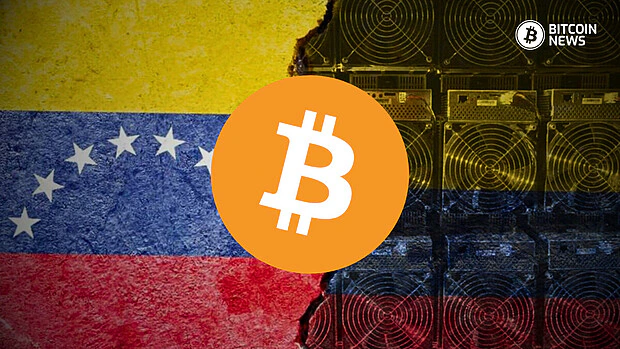Venezuela, a country grappling with economic turmoil and power grid challenges, has taken decisive action to address its energy crisis by clamping down on Bitcoin mining operations.
This decision could result in a significant change in Venezuela’s Bitcoin mining scene, as the government has announced measures to disconnect all digital asset mining farms from the national power grid, to ensure a stable power supply for its citizens.
The move comes as part of a broader initiative, with authorities seizing thousands of Bitcoin mining devices and cracking down on illicit activities within the sector.
The Ministry of Electric Power emphasized the need to regulate excessive energy consumption and guarantee reliable electricity for the population.
One of the key motivations behind the government’s decision is the soaring energy demand driven by digital asset mining operations. These farms, known for their substantial electricity requirements, have been putting strain on Venezuela’s already fragile power infrastructure.
AlbertoNews, a local media outlet, reported on the government’s announcement, quoting the Ministry of Electric Power’s Instagram account:
“The purpose is to disconnect all cryptocurrency mining farms in the country from the [national power grid], avoiding the high impact on demand, which allows us to continue offering an efficient and reliable service to all the Venezuelan people.”
The crackdown on Bitcoin mining is not only about managing energy demand but also about combating corruption within the sector.
Several top officials, including Joselit Ramírez, the former head of the National Superintendency of Cryptoassets, have been implicated in corruption allegations.
Rafael Lacava, Governor of Carabobo state, underscored the importance of public cooperation in identifying illegal mining operations, urging citizens to report any unlawful activities.
Lacava emphasized the need to prioritize the delivery of reliable electricity over individual profit maximization in mining ventures.
Venezuela has been grappling with an ongoing electricity crisis since 2009, exacerbated by massive blackouts in 2019 that left cities without power for up to seven days.
These frequent power outages have had a significant impact on the daily lives of residents and the country’s economic activities.
The government’s efforts to modernize the state-controlled power network have been hampered by poor maintenance and inadequate investment in infrastructure.
Despite promises to upgrade the grid, visible improvements have yet to materialize.
Venezuela’s actions against digital asset mining reflect a broader trend seen in other countries facing similar challenges. Nations like China and Kazakhstan have imposed restrictions or outright bans on Bitcoin mining to protect their power grids and redirect energy to essential services.
The high energy consumption associated with Bitcoin mining has raised concerns globally, prompting regulatory responses to ensure the stability of national power systems.
This skepticism comes in contrast to various reports, in which experts argue that Bitcoin mining can actually improve stability of power grids.
Related: Bitcoin’s Net-Positive Environmental Impact
With ongoing reforms and economic turmoil, authorities should address the root causes of the country’s electricity challenges and pave the way for a more sustainable energy future through better infrastructure management.










